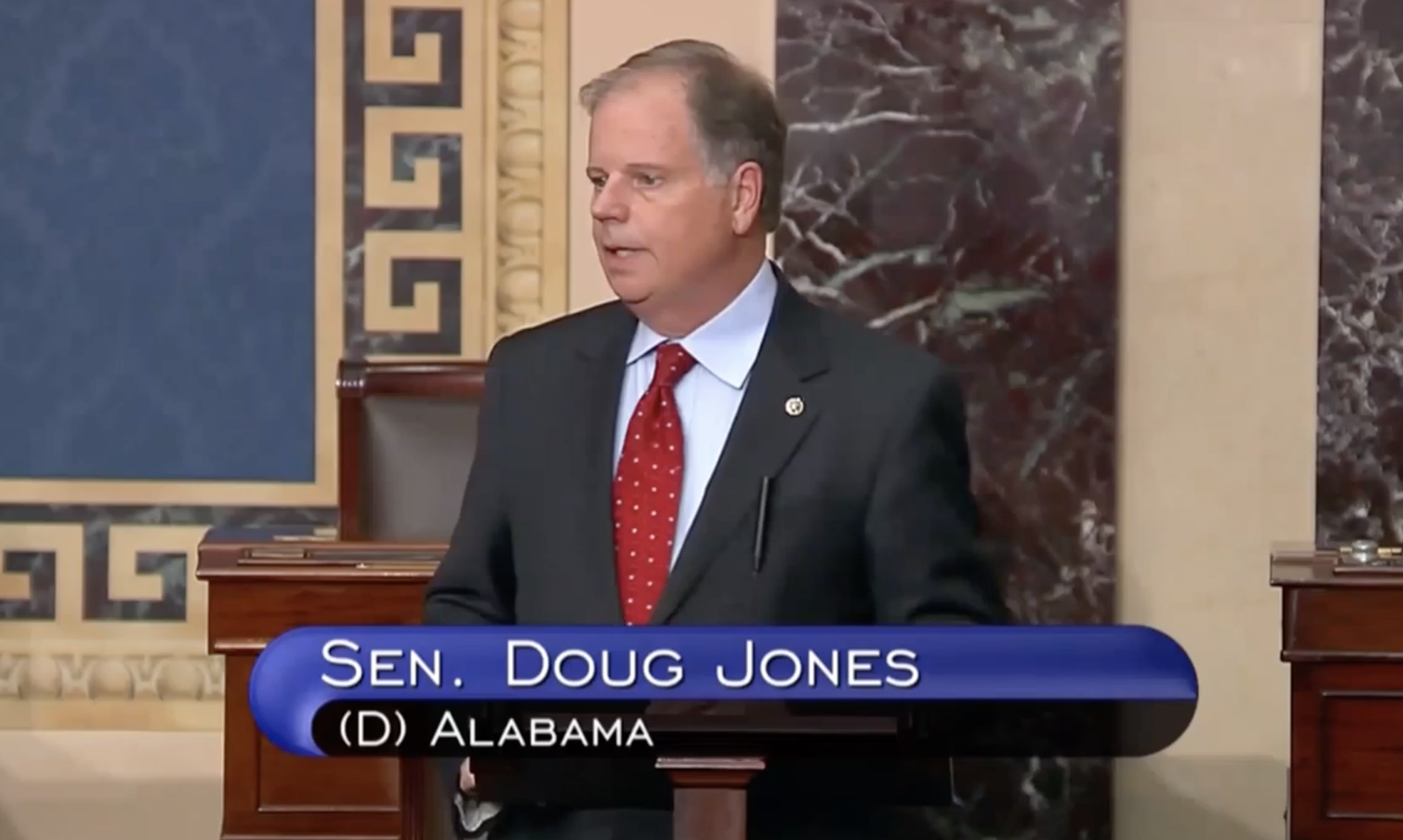U.S. Senator Doug Jones, D-Alabama, joined a bipartisan group of lawmakers in introducing a bill to restore funding for pensions, Social Security and Medicare.
The Rescue United States’ Trusts Act introduced Tuesday would create individual congressional committees for each endangered trust fund, which would be tasked with drafting legislation to bring those funds back into solvency. Those trust funds include Highway, Medicare Hospital Insurance, Social Security Disability Insurance, and Social Security Old-Age and Survivors Insurance.
“This important legislation creates a bipartisan path forward that gives us the tools to we need to put our budget on the path to fiscal responsibility and upgrade our decaying infrastructure, protect pensions and Social Security benefits for retirees, and ensure that Medicare remains strong for seniors for generations to come,” Senator Jones said in a press release.
The Social Security Administration in May released its annual report that found that the Old Age, Survivors and Disability Insurance trust fund would be depleted by 2034, which is the same estimate the agency came to in last year’s report.
In 2020, the cost of Social Security retirement payments is expected to exceed all of its income, but that doesn’t mean retirees will stop getting payments, because for years the fund brought in more than it paid out.
Much of that extra money is being held in bonds, Forbes reports, and the program will continue to collect social security taxes, which the administration estimates will pay for about 77 percent of Social Security retirement benefits for the next 75 years.
Any cuts to Social Security retirement benefits recipients could devastate recipients, however. A study by the Social Security Administration in April found that a recipient who earned an average annual income of $51,795 and who retired at age 76 in 2037 would currently be entitled to $27,366 in annual benefits. Without a fix to the trust fund’s shortfalls that worker would receive just $21,669 annually.
The Center on Budget and Policy Priorities, a progressive Washington D.C.-based think tank, found that although trustees for Medicare’s Hospital Insurance fund has reported that the fund will be depleted by 2026, the fund will still be able to pay for 89 percent of medicare hospital insurance payments through incoming payroll taxes and other revenues. Shortfalls will have to be closed by raising revenues or cutting expenditures, however.
The 2026 insolvency problem does not include Medicare coverage for physician and outpatient costs or to the Medicare prescription drug benefit, which are both funded through a separate fund, which is in good fiscal standing, according to the Center on Budget and Policy Priorities.
U.S. Senators Mitt Romney, R-Utah, who led the creation of the bill introduced Tuesday, told Roll Call that he has hope this attempt might succeed where others have failed.
“It is my perspective that I’ve gained by talking with others that we have a better shot of taking on the solvency of these trust funds by looking at them one by one, rather than by trying to create one mega piece of legislation that’s going to be troublesome in some way for almost everybody,” Romney told Roll Call.
Other sponsors of the legislation are Joe Manchin, D-W.V., Todd Young , R-Ind. and Kyrsten Sinema, D-Ariz.. A companion bill in the House is sponsored by U.S. Representatives Mike Gallagher, R-WI, Ed Case, D-HI, William Timmons, R-SC, and Ben McAdams, D-UT.
How the TRUST Act works:
- U.S. Treasury would have 30 days upon passage of the legislation to deliver to Congress a report of the government’s major, endangered federal trust funds.
- Congressional leaders would appoint members to serve on “Rescue Committees”—one per trust fund—with the mandate to draft legislation that restores solvency and otherwise improves each trust fund program.
- Rescue Committees would ensure bipartisan consensus by requiring at least two members of each party to report legislation.
- If a Rescue Committee reports a qualifying bill for its trust fund program, it would receive expedited consideration in both chambers. While 60 votes would be required to invoke cloture for final passage in the Senate, only a simple majority would be needed for the motion to proceed, which would be privileged.




















































